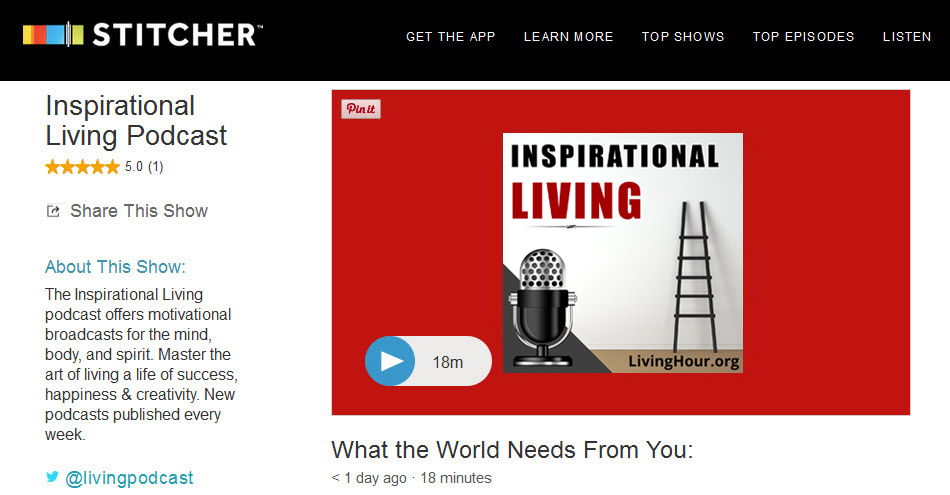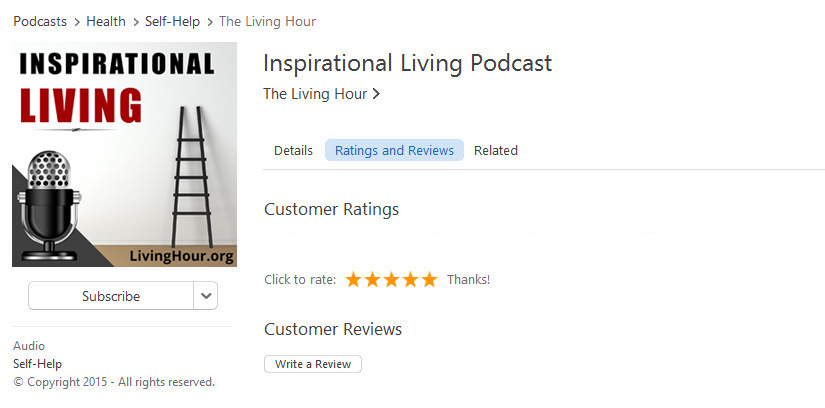05 Jun The Psychology of Persuasion | Educational Podcasts
Welcome to the Inspirational Living podcast, brought to you in part by Book of Zen, makers of inspirational fashion and gift ideas. Visit them online at BookofZen.com. Today’s podcast has been edited and adapted from: The Psychology of Persuasion, by William Macpherson, published in 1920.
Humanity has been described as a reasoning animal; and everyone likes to think that the description applies to them. In reality, we do not, usually, act rationally in the sense that we first carefully calculate the means to realize our objectives, and only then act. Even when we do make such calculations, the fundamental source of our actions is always some instinct or emotion that they seek to satisfy.
To say this is to say nothing derogatory about human nature. Indeed, as we all know, to act on impulse is often much more respectable than to act from reasoned calculation. If much of the wrong-doing of the world may be attributed to the uncontrolled working of selfish impulses, it should also be remembered that impulse is the source of art and science, and of many of the best things in life.
Impulse is one of the non-rational elements in our nature, but this does not imply that it is necessarily irrational, or that it works against reason. Persuasion is, fundamentally, a non-rational process, dominated much more by the emotional and impulsive part of our nature than by the rational. But this does not mean that persuasion is, of necessity, irrational.
The starting-point of all persuasion, of ourselves or others, is a belief or wish. Holding a certain belief (or desiring that a certain course of action shall be pursued) we set out to justify our belief and the conduct that it implies. Thus, before a professional speaker begins a speech, he or she (whose aim is persuasion) has already present in their mind a belief or wish, fully formed, from which all their arguments and appeals flow.
When we persuade ourselves, it also is true that the belief or wish we seek to confirm is given before-hand. In this respect persuasion differs from the process of rational logic. When we employ the process of rational logic, our object is either to discover or to demonstrate. We may desire, for instance, to discover the conditions under which a candle will burn, and this we may do by a process of induction from a series of experiments. The mere fact that we are seeking to discover a true conclusion indicates that it is NOT given beforehand.
With persuasion, the belief precedes the process, instead of following it. Our effective beliefs regarding human life and conduct are determined not by reasoning but by many unconscious and frequently irrational factors. We believe because we wish to believe, so that we may satisfy our instincts and emotions and sentiments, because our environment, experiences, and education have made certain beliefs seem necessary.
In self-persuasion, the belief from which the process starts is often held by us unconsciously, having its origin in many remote factors. In the persuasion of others, we begin with a conscious belief, and the subsequent process is a conscious, deliberate, and more or less systematic attempt to impress our belief on others. In both cases, our purpose is to gain approval (our own or that of other people) for beliefs or wishes already formed and accepted by us.
Our beliefs and wishes, from which the process of persuasion starts, depend mainly on the emotional elements in our nature. The motive force that compels us to action is always some instinct, tendency, emotion, sentiment, or passion. We accept a belief or wish, and act so that it may be realized, primarily with a view to satisfying some aspect of our emotional nature.
The full podcast transcript for this episode is now exclusively available to our patrons. Become our patron for as little as 3$ a month to gain access to all of our podcast transcripts and the exclusive series Our Sunday Talks. Learn more at: https://www.patreon.com/inspirationalpodcasts.
Subscribe to the Inspirational Living Podcast at iTunes & Stitcher
All transcripts from our inspirational podcasts are edited adaptations of the original work and copyrighted by LivingHour.org. For reproduction permission please contact us via our contact page.


